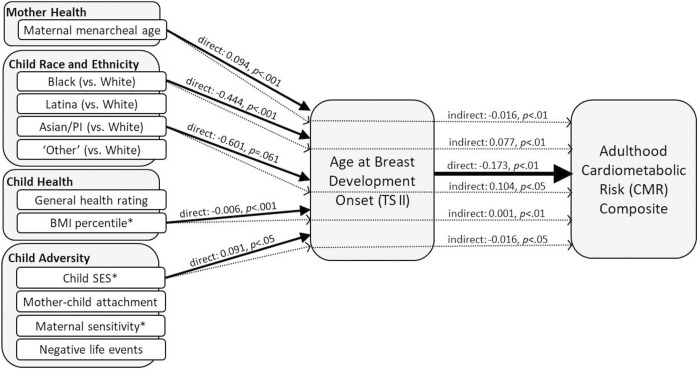Fig 1. Reported from adjusted models, the solid arrows represent direct effects (with p-values < .10) between the prepubertal risk factors and age at breast development onset (TS II) as well as age at breast development onset (TS II) and the adulthood CMR composite.
The dotted arrows represent the indirect (mediated) effects of these prepubertal risk factors on the adulthood CMR composite via age at breast development onset (TS II). Results suggest earlier pubertal onset, marked by the initiation of breast development, is a pathway through which risk for poor cardiometabolic health in adulthood is transmitted both directly and indirectly. *Direct effects (not depicted) were also observed for child BMI percentile (0.006, p < .01), childhood SES (-0.153, p < .05), and maternal sensitivity (-0.131, p = .080) predicting the adulthood CMR composite.

